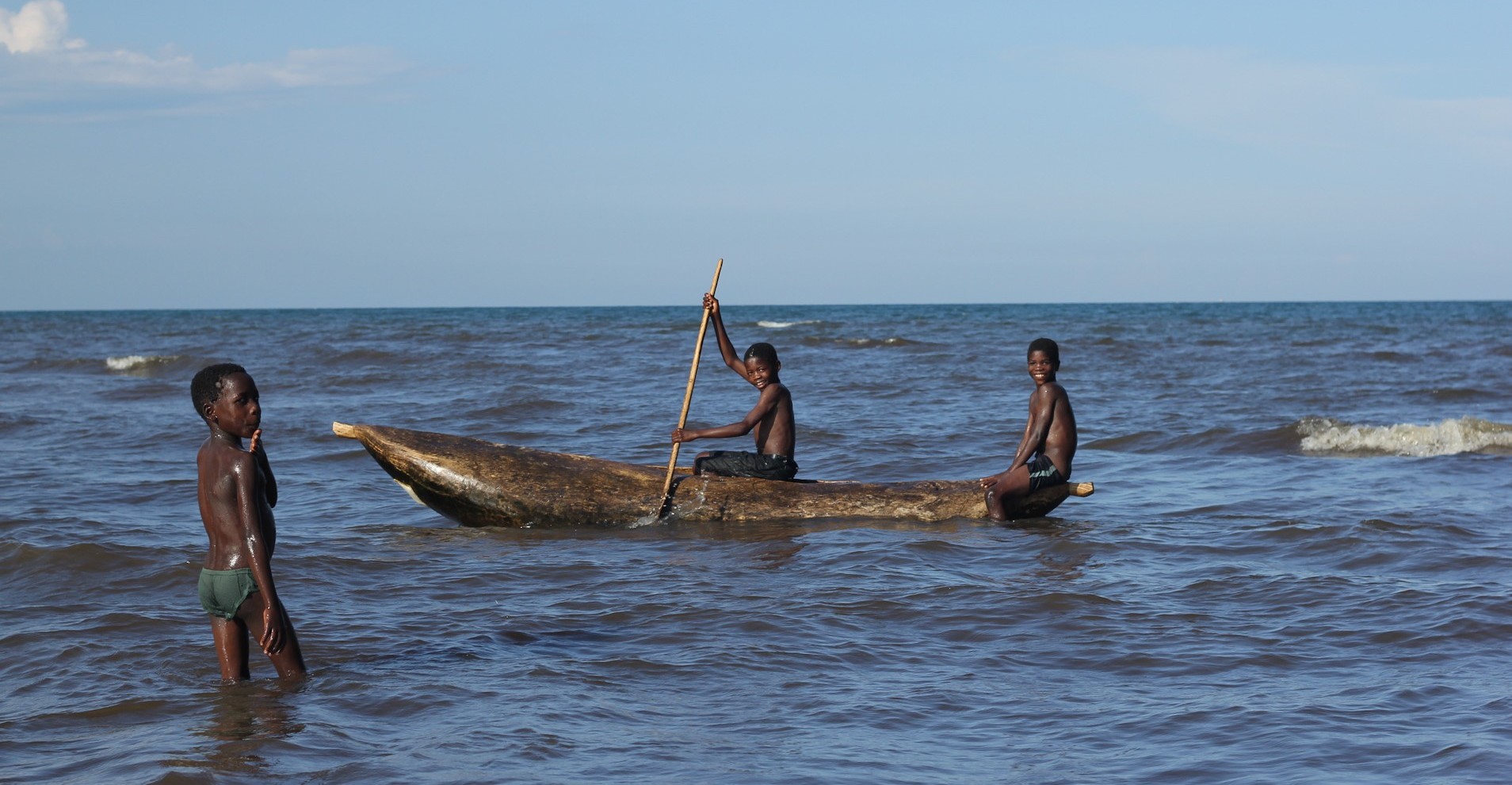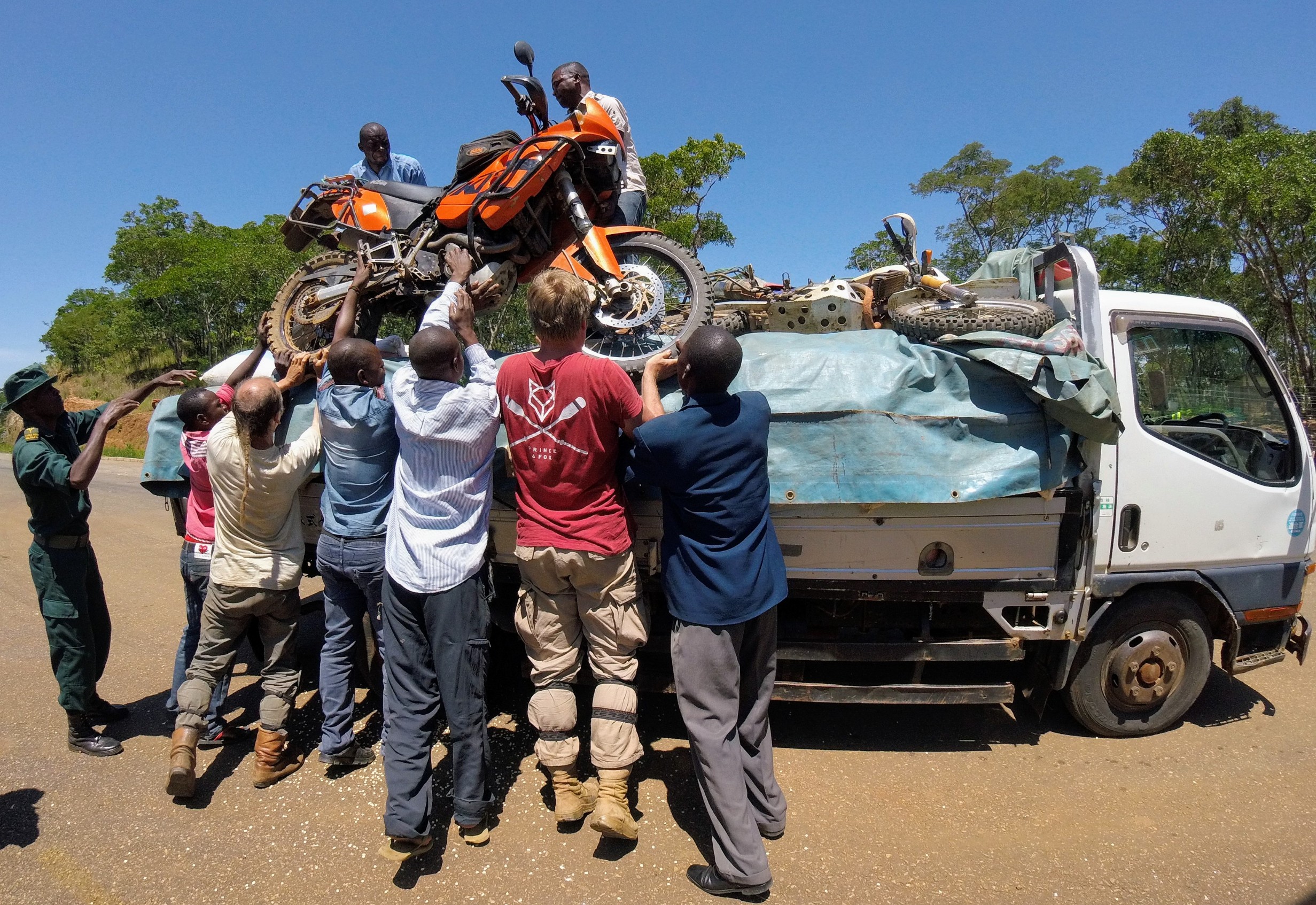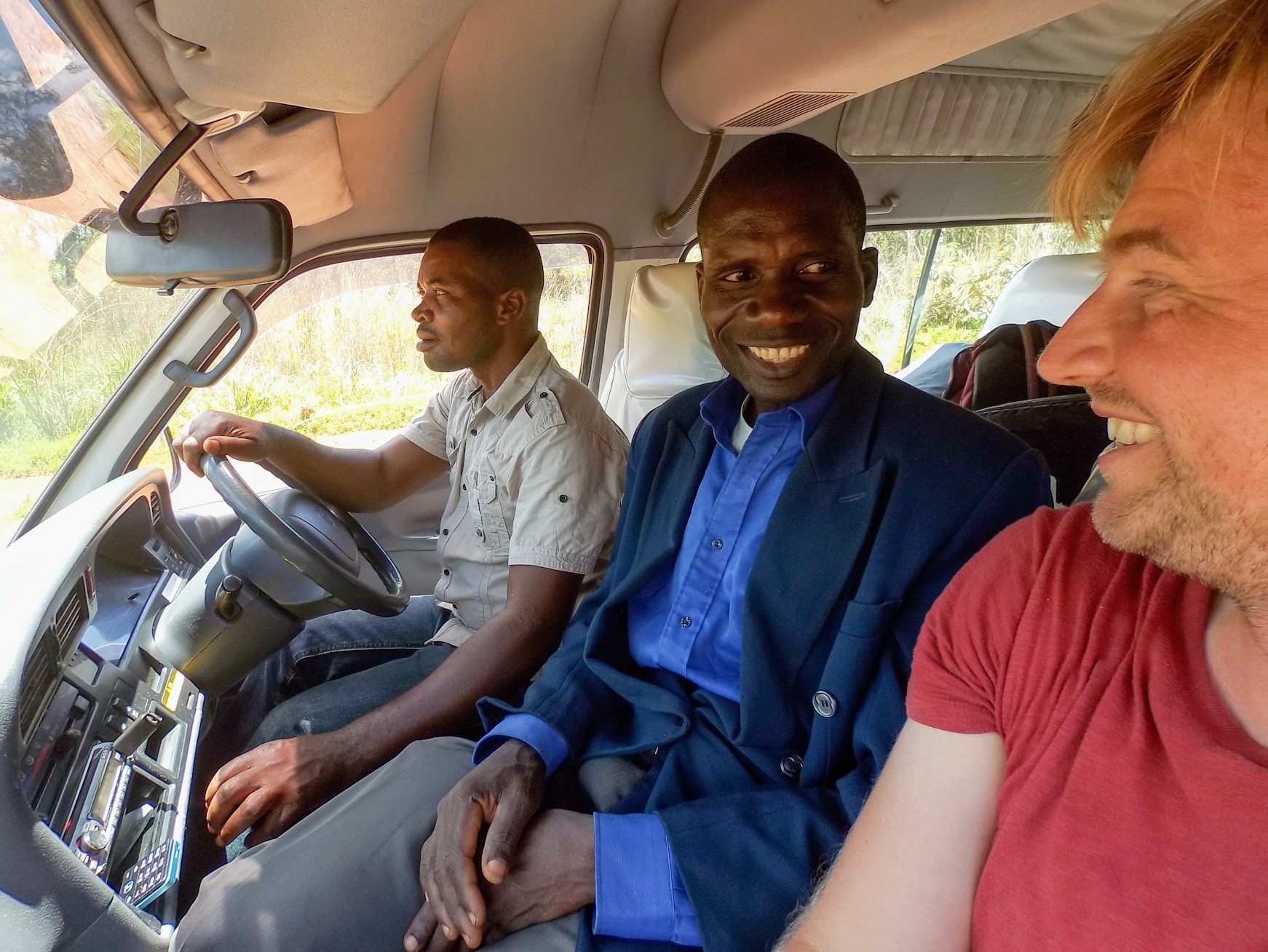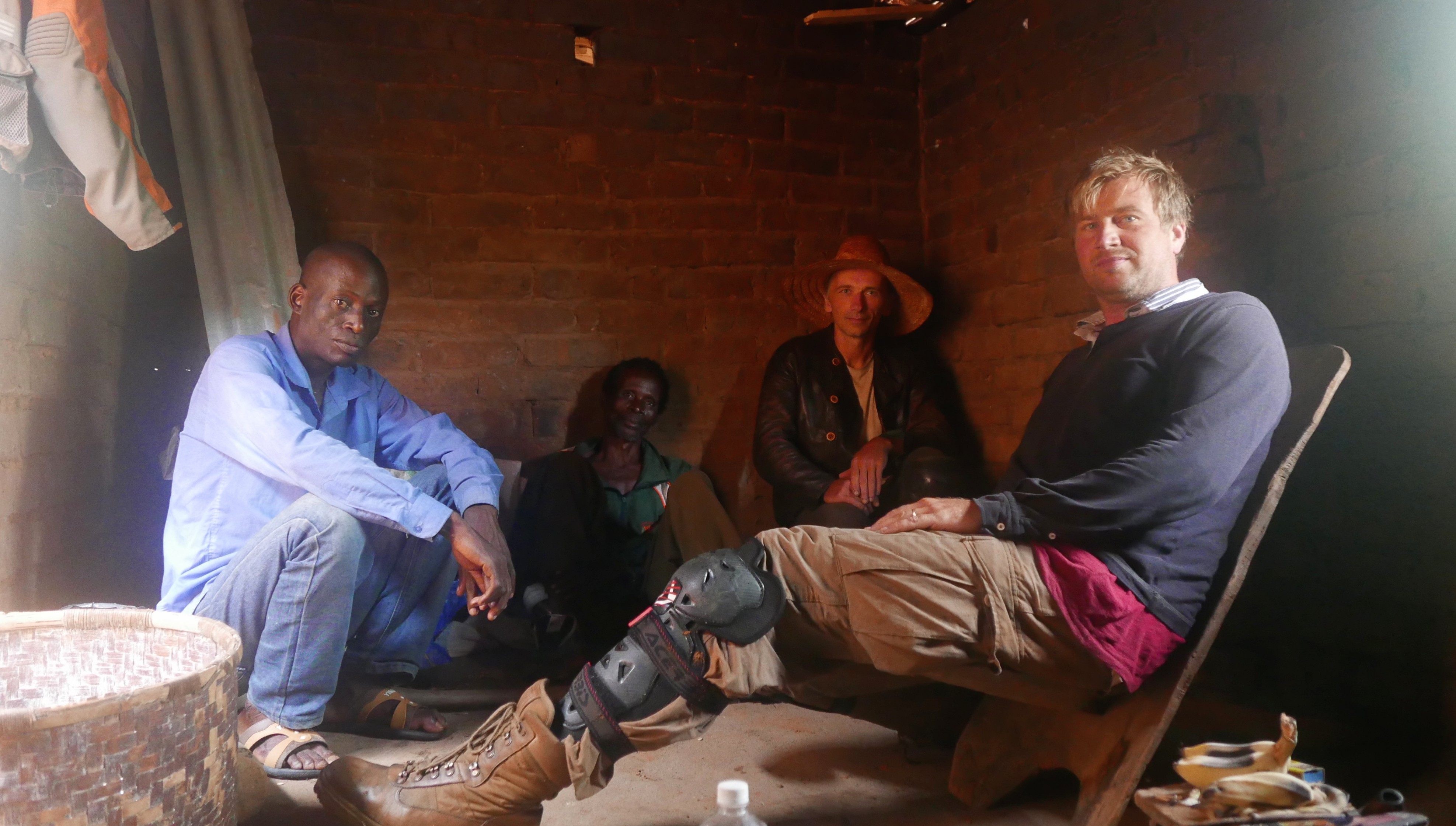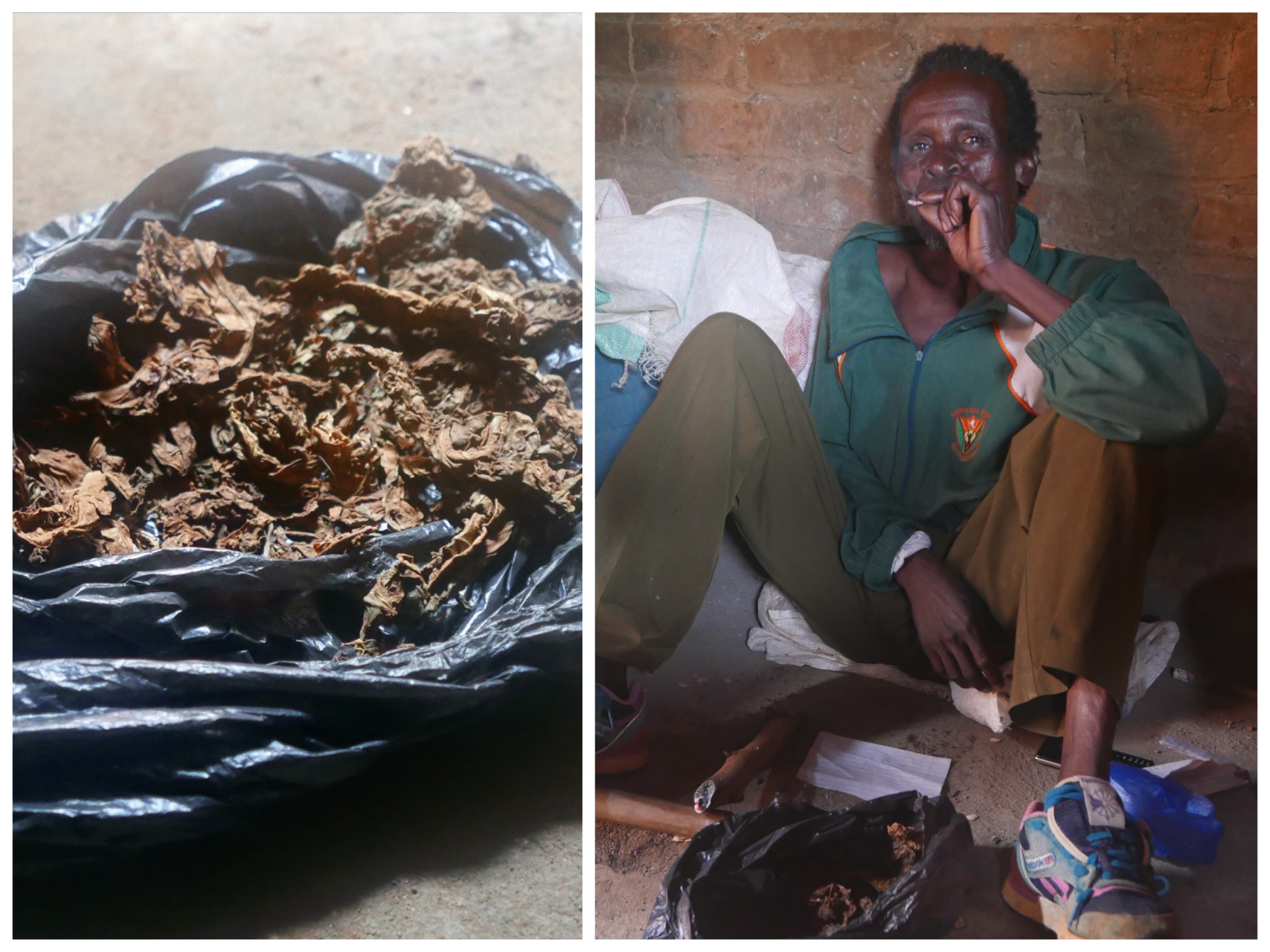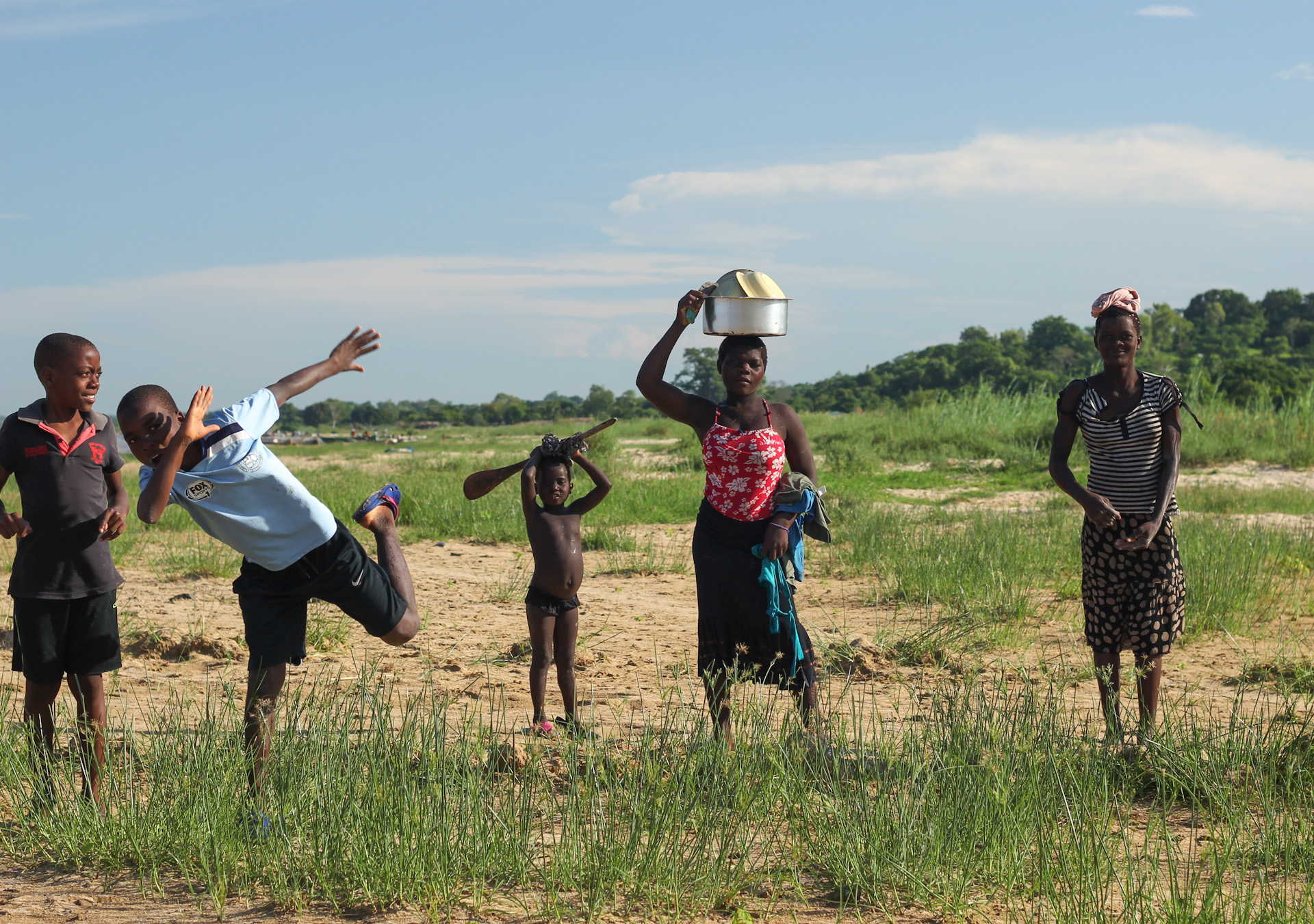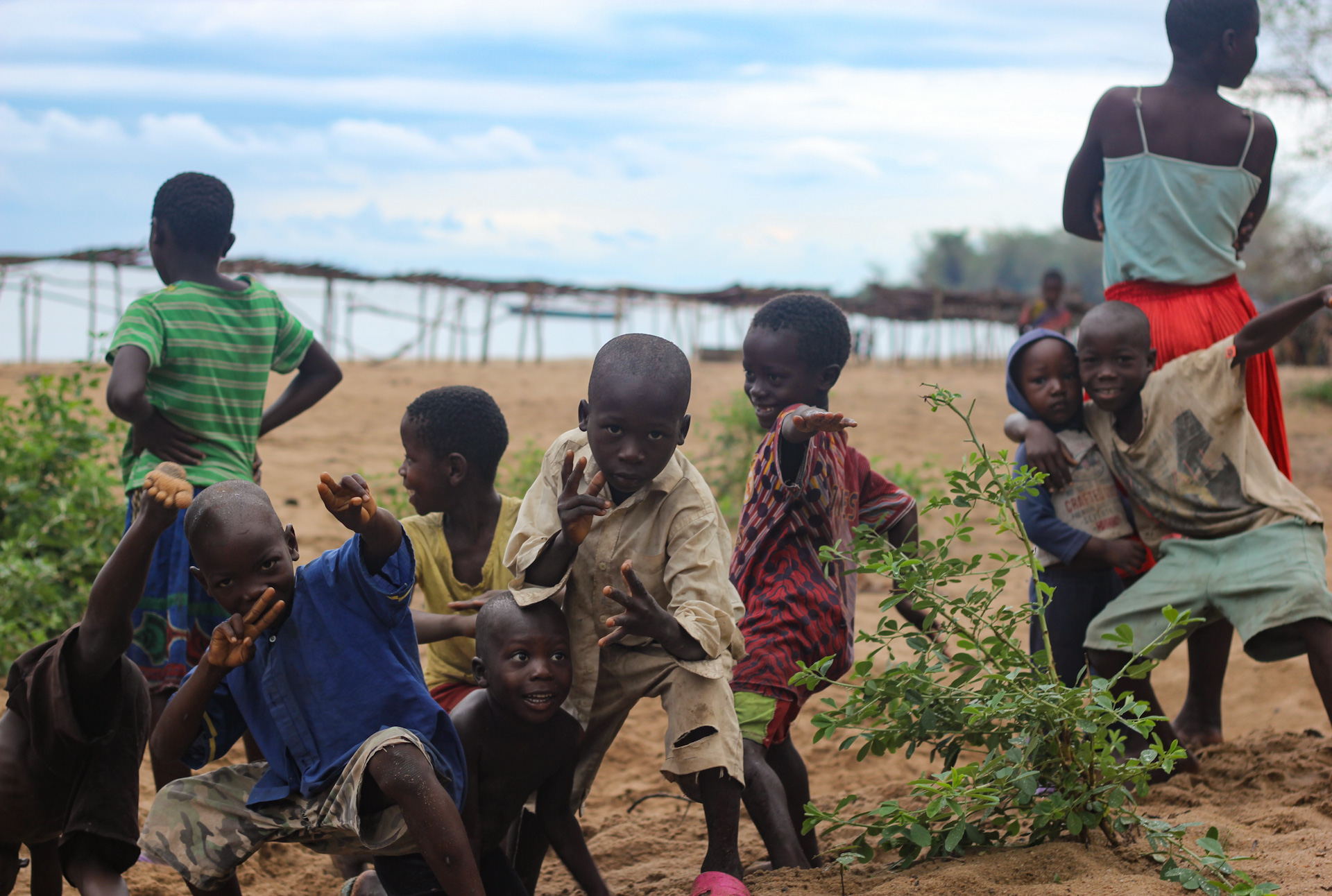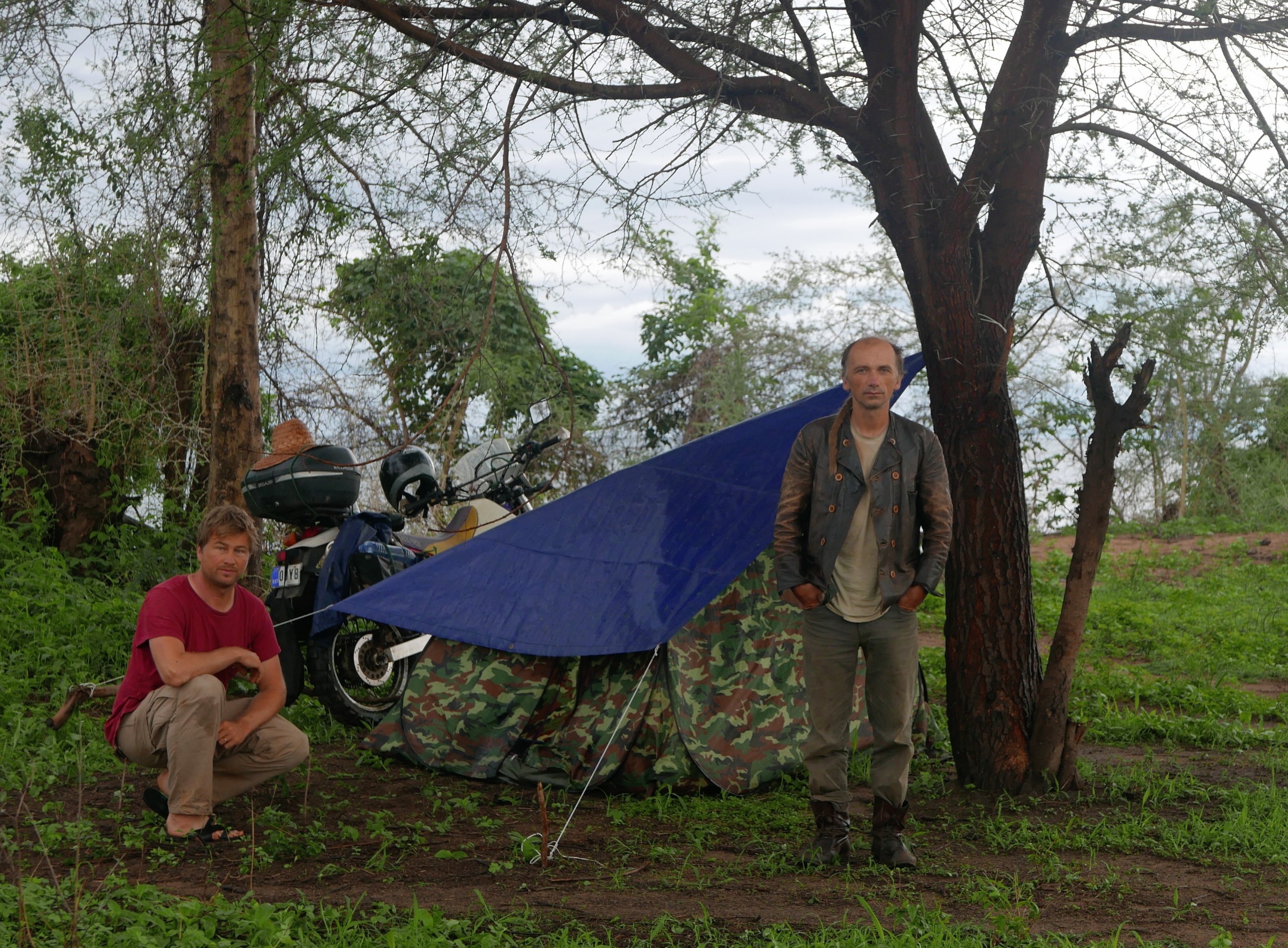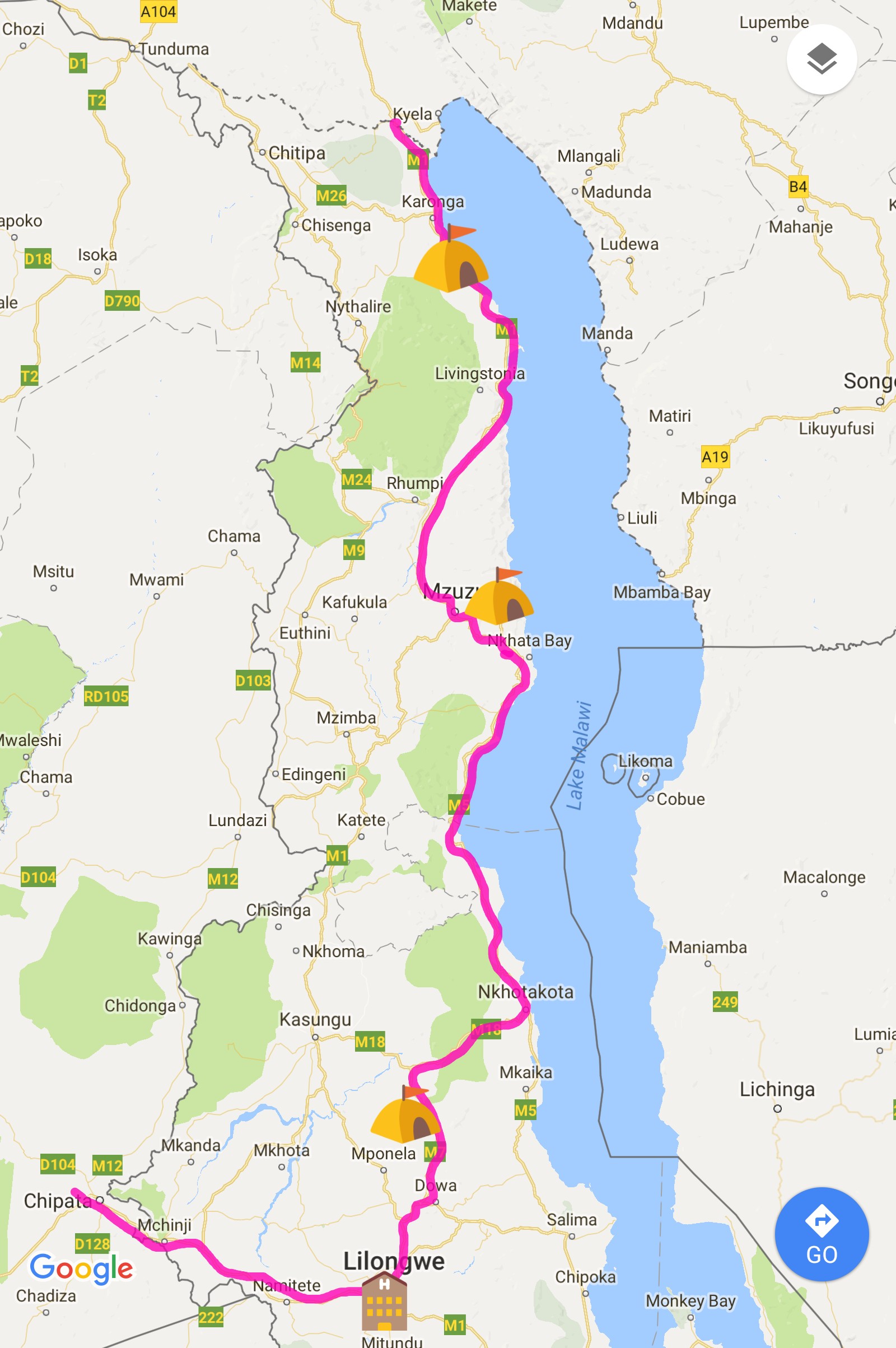Suddenly there is an electric fence and a gate on the road. We’ve hit another game park. “We don’t let motorcycles in,” the guard is adamant. This 35km dirt road was the only connection to the lake, everything else is now 100+ km round trip. Luckily we’ve been in this situation already.
Half an hour later the solution arrives. It comes in the form of 6 dudes and a 3-tonne truck, loaded with 4-tonne of maize. That’s not a problem, for $15 it will easily take another 500kg of bike. I suggested that we reorganise the load and construct some slipway to push the bikes up. “We are six,” the driver says and pays no further attention to my proposal. $15 is not a small amount of money, where an average nominal GDP per person is $350 per year. Food and local products are cheaper too, so on PPP basis it is $1000+, but it does explain why there are virtually no cars in the country.
The added bonus is the conversation that ensued in the truck with my Malawian fellow passenger. He spoke good English, had been to South Africa and was curious about our travels. “You come this long way, take so much time, what is the purpose of your travels?” he asks. I explain that we are eager to see other countries and learn about them. He remains suspicious: “Hmm, there must be some bigger reason…” I attempt to argue that seeing other peoples and countries is a big enough reason, but he is not buying it. Surely, travelling is incredibly selfish and pretty pointless in the grand scheme of things. If such a grand scheme exists.
Mupata (name changed) is also eager to hear about our country and what are the chances for him to get there. I explain that he needs to get a visa and then it is a very long walk, probably many years. We end up in a discourse in economics. He is a smart guy and curious. He believes he will have a better life in our country Estonia, because he would work very hard there. I enquire, why is it different if he works very hard in Malawi or in Estonia? He thinks he will get better price for the crops – I enquire why? He admits he hadn’t thought it through yet, but after a pause says: because you can produce more in your country because you work differently. “For example, I respect you more than I respect my neighbour. Because you can do things that he will never learn to do,” he continued. An awkward conversation, so I turned to the discussion of how the farming, land yield and prices of crops compare between Estonia and Malawi.
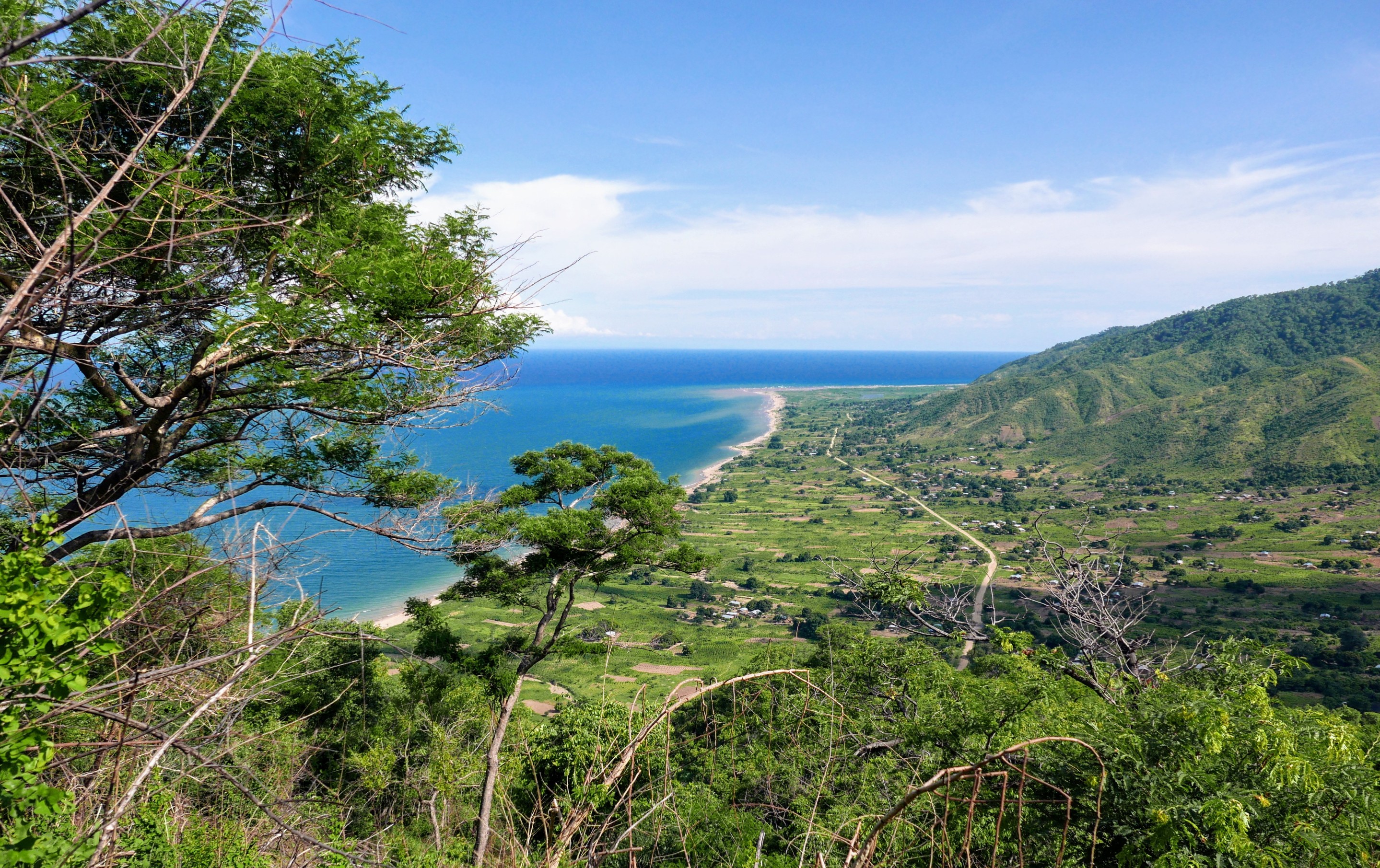
In the morning I wake up to the thunder ripping through skies, and then again and again. Slowly I inspect the dark clouds in the sky and then decide to wake up Juka. He springs up in a microsecond, 40 seconds later we have packed up the tent and I’m kickstarting Kotilda. Last night we were late and found the camp spot in the dark, down the sandy path in the bottom of a valley. We escape with the first drops, 30 minutes later the path would have turned into the river and in no way we could have gotten up slope.
We take a shortcut track to get to the tarmac fast, but it gets smaller and the track vanishes near a couple of huts. By now the heavens have opened up and it is raining down, up and sideways. I crash Kotilda on the slippery downslope and we run for cover under the hut’s roof extension. 10 minutes later the master lady of the house comes out of the hut and insists we take cover in the shed with his husband. That’s very nice. It rains for hours. We’re killing time. The dude rolls an idle cigarette. In his pocket he has a small pouch of a plastic bag and sheet from a notebook. He barely puts any tobacco in the paper and rolls them slim. Smoking just paper it looks like. It is “chimambwe” – tobacco in nyesi. But it is no ordinary tobacco, the one they sell to the foreigners is 2x bigger plant, but 5x weaker in the content of all the poison. He grows his chimambwe in his backyard.
We hadn’t gone for a swim yet, so we decide to take the last camp in Malawi on the lake shore. Rain takes time away and if it is not raining then instead of riding in the heat we prefer to take breaks under the shade of the mango trees. We have averaged 300km per day in Malawi, about 5 hours of riding every day.
It is fascinating that they don’t need cars in the villages. We followed another bike path for 5km through a neverending village to reach the lake shore. I can imagine this is exactly how village life felt like in rural Estonia 100 years ago. Even reminded me the little town life, where our grandparents lived and we spent our summers.
10 minutes after us arriving the word has gone around and we’ve developed an audience of 40 kids from babies barely walking to teenage girls already pregnant. They keep a distance of 15 meters and follow us around diligently. When Juka goes to the bikes and I go to the lake, they split in half and follow us both. They just watch quietly, so thrilled that some forget to close their mouths. It is very awkward in the beginning, but there is no reason why we need be intimidated. Privacy is overrated. A couple, who wrote a fantastic story about crossing DR Congo in the landcruiser had a similar experience multiple times more intense every night. They never come to terms with it.
When Juka went to get a teapot, he explained to our audience: “we’re going to make some tea.” What followed was so absurd it is hard to describe. Kids ran to the beach, throwing somersaults and shouting: “Tea. Tea. Cup of tea.” Imagine teletubbies actors eating some special mushrooms before the show and you get the idea.
The safe distance has decreased to a couple of inches. There is now a tight wall of children surrounding us and our teabrewing fire. It is an hour into the darkness and we are discussing how are we going to keep them out of our tent when a shepherd arrives bringing his cattle to the beach. He assesses the situation and determins that kids will all have to go home. There is much reluctance and some negotiation, but the man had authority and the kids were impressively obedient.
The tent cover gets good use as it is raining hard through the night again.
